Covid: Birmingham pubs and cafes adapt to tier 2 rules
- Published
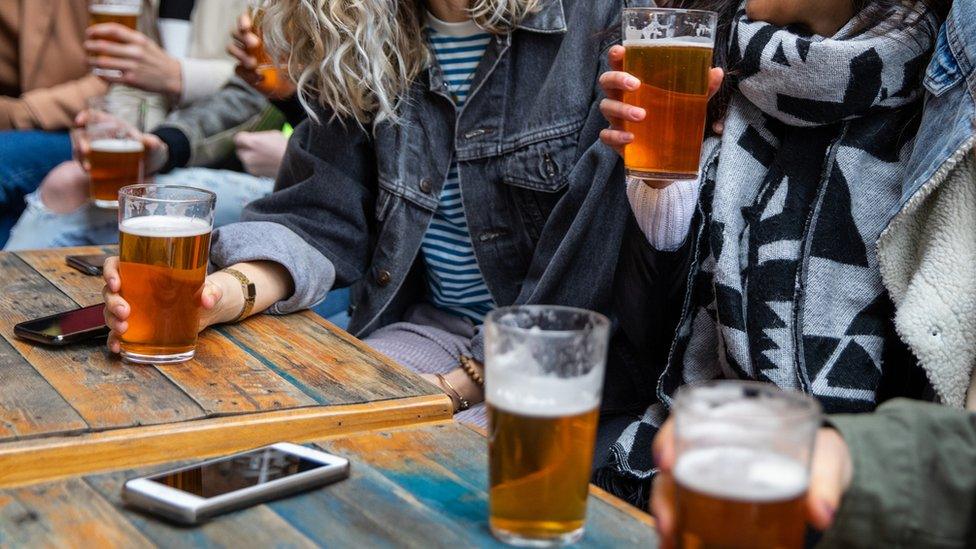
Multiple households are only allowed to mix outdoors and in private gardens under tier two restrictions
"Pretty much my entire adult life has been put into this and to watch it go up in smoke after all the blood, sweat and hard work that has gone into it... we have just got to make sure it doesn't somehow, we have just got to fight to keep going."
Adam Johnson has run The Plough in Harborne, Birmingham, for 17 years. It is one of thousands of businesses struggling to adapt after the city was put into tier two restrictions.
For a week, the mixing of households indoors has been banned in tier two areas across England. Multiple households can only gather outdoors and in private gardens - up to a maximum of six people.
It means pubs such as The Plough, which have outside space, quickly began transforming it to be used by mixed groups, as Mr Johnson said people generally came out to socialise with other people.
Allow Instagram content?
This article contains content provided by Instagram. We ask for your permission before anything is loaded, as they may be using cookies and other technologies. You may want to read Meta’s Instagram cookie policy, external and privacy policy, external before accepting. To view this content choose ‘accept and continue’.
"The fact they are going to have to sit outside all winter means they are probably more likely to get pneumonia rather than Covid, but we've just got to fight so we can keep as many jobs as we can," he said.
It is the third time changes to restrictions in the West Midlands have affected hospitality businesses.
They closed entirely when lockdown began in March, with some doing deliveries in order to keep money coming in.
In September, months after lockdown had lifted and bars and restaurants could welcome guests - as long as they followed national guidelines - people in Birmingham, Sandwell, Solihull and Wolverhampton were put under tighter restrictions.
Under those rules the only places households could mix, under the rule of six, was in settings such as bars and restaurants - visits to the homes of others, including their gardens, were banned.
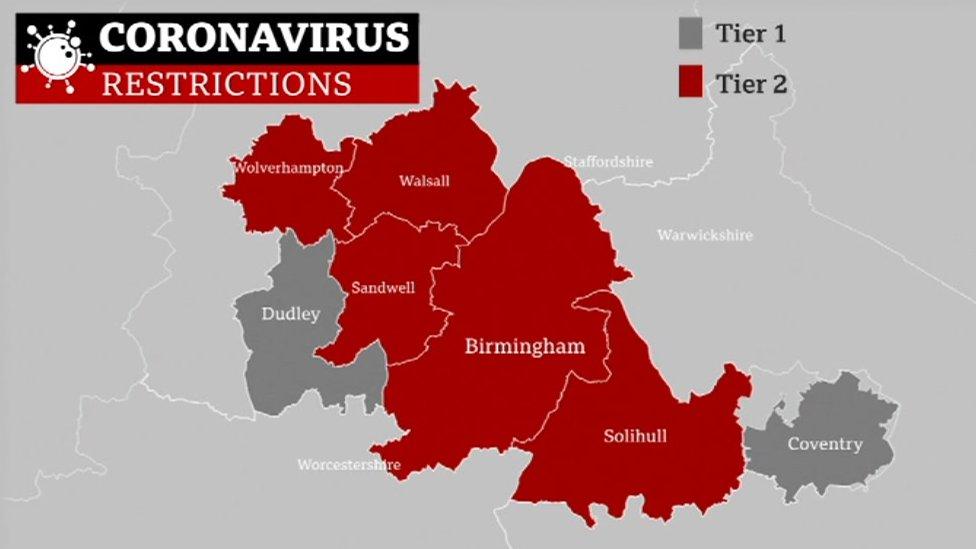
Birmingham, Sandwell, Solihull, Walsall, and Wolverhampton are currently in tier two, while neighbouring Dudley and Coventry are in the less strict tier one
And the most recent decision to prevent any household mixing inside venues has sparked concern in the region, including from mayor Andy Street, who said figures showed the main problem leading to rising cases remained transmission within household settings or private gatherings.
Policing the one-household policy is proving a struggle, according to Mr Johnson.
Although staff ask all customers, there is nothing more they can do to enforce it, although they have found most people happy to comply, he said.
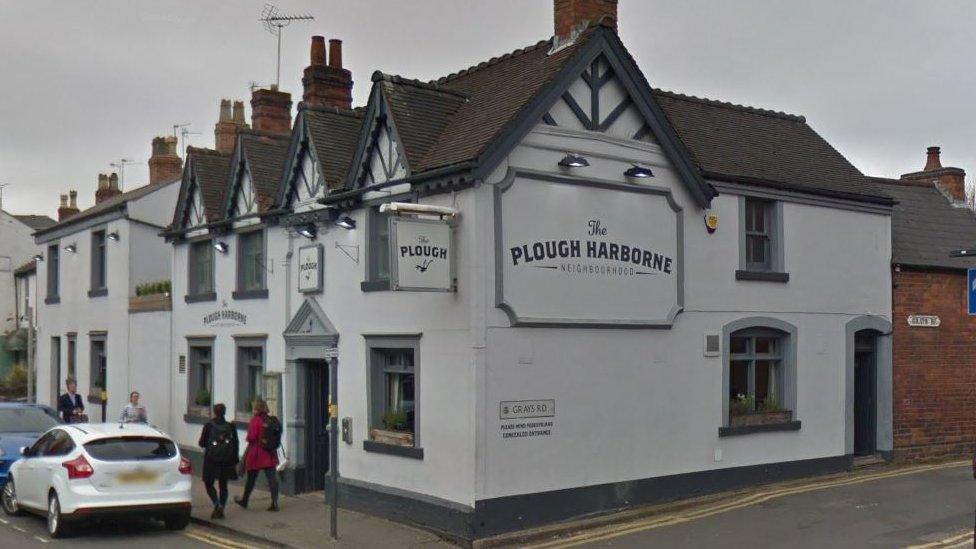
Outside space at The Plough has been transformed to try to encourage customers to keep visiting
"Tier two is really, really hard; in some respects tier three would be better because we would be forced to close, we could furlough staff," he added.
"But at the moment I am having to cut back hours because the demand is not there.
"It is a harder situation because it is like death by a thousand cuts."
Allow Instagram content?
This article contains content provided by Instagram. We ask for your permission before anything is loaded, as they may be using cookies and other technologies. You may want to read Meta’s Instagram cookie policy, external and privacy policy, external before accepting. To view this content choose ‘accept and continue’.
Peter Connolly, who opened Nortons, in Digbeth, in December, said the restrictions have seen his pub reduced to "a third of the capacity and a quarter of the turnover" and he is now barely breaking even.
His team built a canopy across the beer garden a few weeks ago, but Mr Connolly said he had not expected the garden to become his "only capacity" to accommodate customers.
If he had waited another week to install the cover, he said, he would not have been able to do it because of "how tight things are" financially.
"We have built a kitchen and started doing food - with everything that has been thrown at us we have tried to set up something to fill it, but at the moment it is so bleak."
He believes one of the biggest issues is the 22:00 curfew and said businesses were given "so little heads up" before restrictions were changed, they "don't know what to expect".
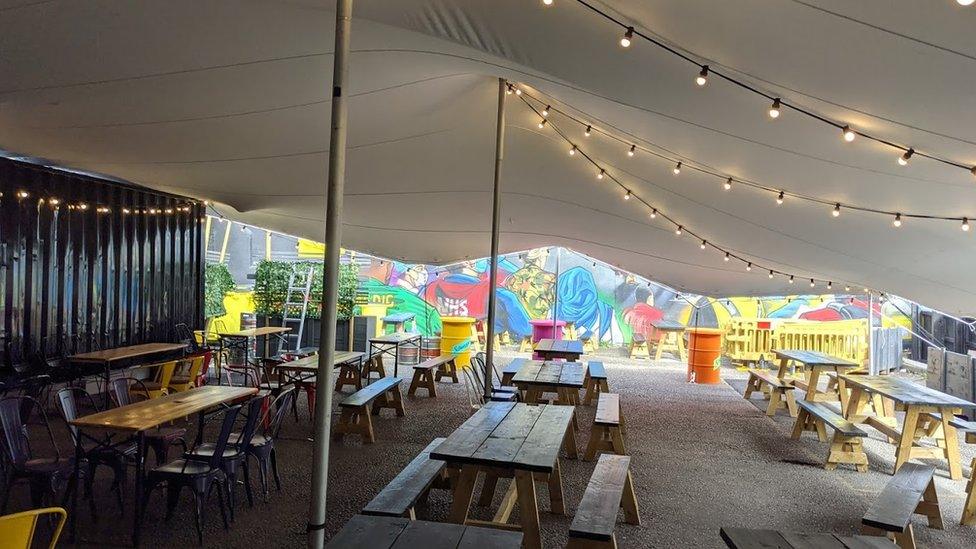
Peter Connolly said businesses such as his were getting little advance warning of changes to the rules
Mr Connolly also said venues should have been given more guidance on how to police the mixing of households indoors and with no definite way to prove a group is from the same household, there is no way to disprove it either.
"The best way we have found so far is to ask people to shout out what colour kettle is on their kitchen counter and if they don't all get it right, they are not from same house," he said.
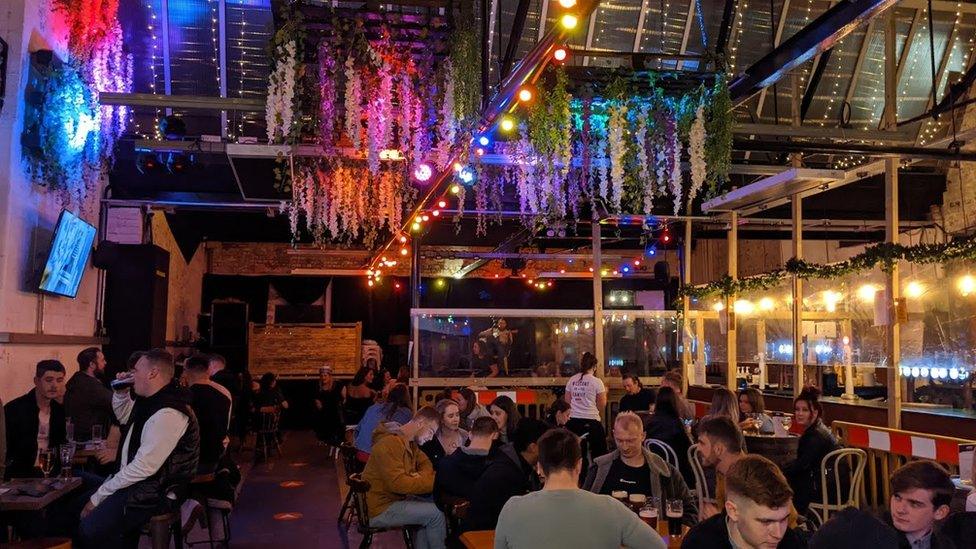
At Nortons, capacity at the pub has gone down from 600 to fewer than 200
He also thinks there should be more support for businesses trying to operate within tier two rules.
"Some of us took out massive loans, which need to be paid back, to make sure our venues are Covid secure. Now we are being told we're not good enough.
"It is frustrating to see so few [Covid] cases related to hospitality, yet we are bearing the brunt of some fairly arbitrary rules."
Naomi Payton, general manager of the Kitchen Garden Cafe in Kings Heath, said the announcement of the tiers had been "quite shocking".
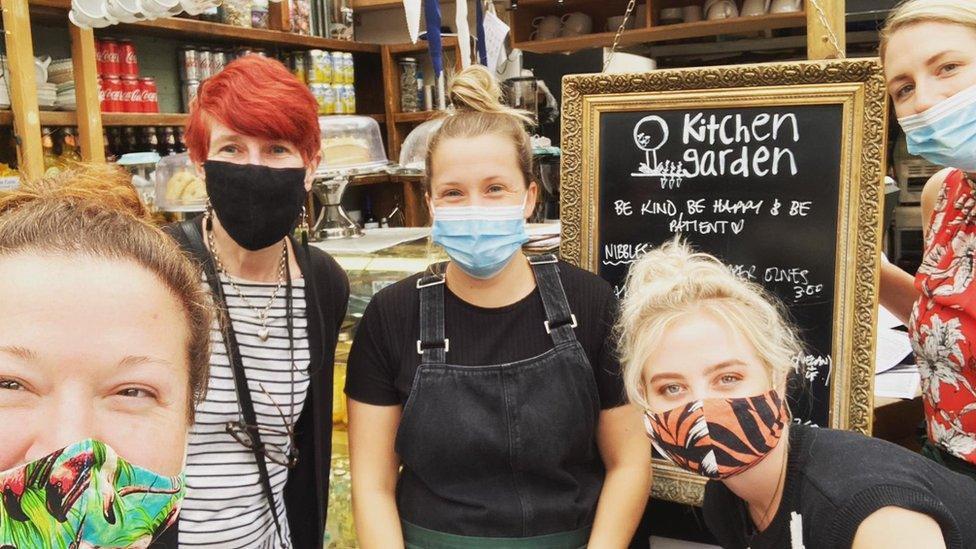
Naomi Payton and the staff at the Kitchen Garden Café are "staying positive"
The cafe has a small courtyard, which staff had already arranged to cover from the elements, including the installation of heaters.
"[On the first day] we had a steady stream of people wanting to sit outside and [they are] happy to do that," Ms Payton said.
"I personally am still unsure what will be next in the immediate few weeks, with the weather getting colder; are people going to be wanting to sit outside as much?
"There is only so many times people will come out with people in their household. Hospitality venues are where someone does come to meet friends, relax and enjoy themselves."
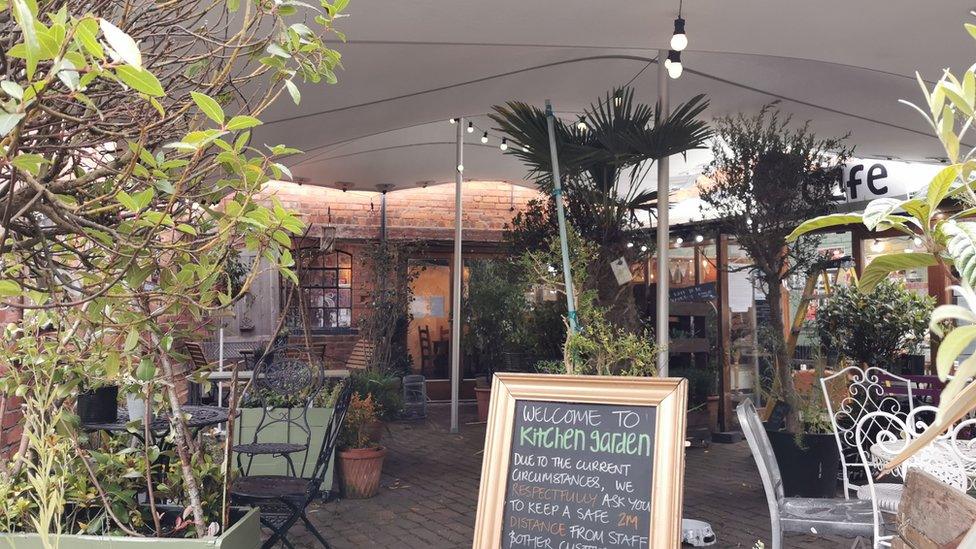
The Kitchen Garden Café added a cover to its courtyard area shortly before the tier system was announced
Despite the increasing difficulties, the cafe owner said she was staying positive.
"I know many other hospitality businesses would be pulling hair out, if they have not got that outside space or are a small restaurant, they will be scared for their business," Ms Payton said.
"And we are thinking of all those small businesses that are struggling the most."

LOCKDOWN LOOK-UP: The rules in your area
SOCIAL DISTANCING: How have rules on meeting friends changed?
SUPPORT BUBBLES: What are they and who can be in yours?
FACE MASKS: When do I need to wear one?
TEST AND TRACE: How does it work?

Follow BBC West Midlands on Facebook, external, Twitter, external and Instagram, external. Send your story ideas to: newsonline.westmidlands@bbc.co.uk , external
- Published13 October 2020
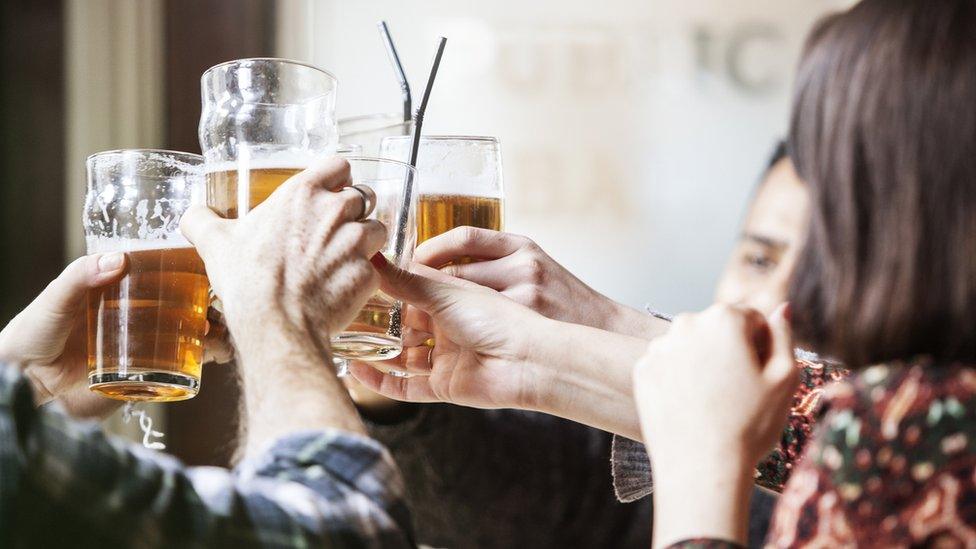
- Published13 October 2020

- Published13 October 2020
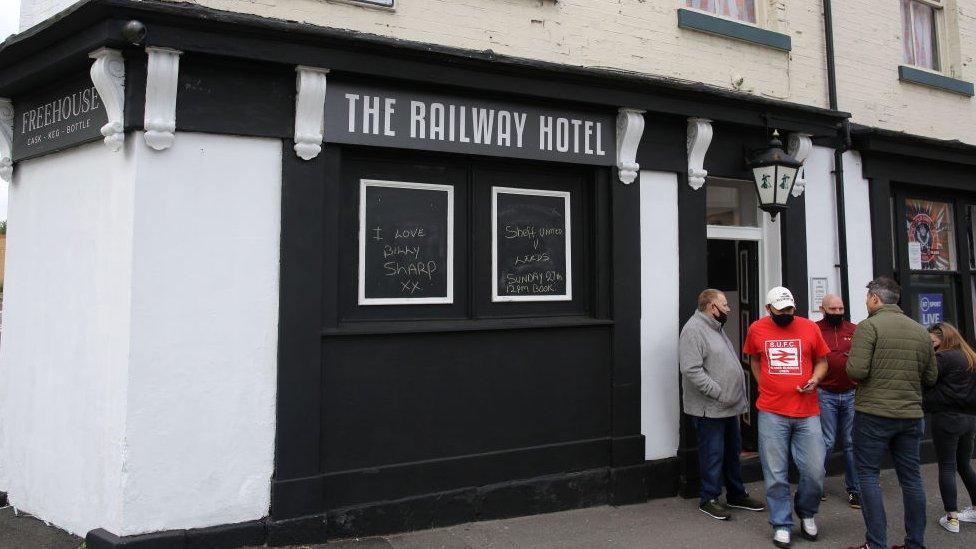
- Published12 October 2020
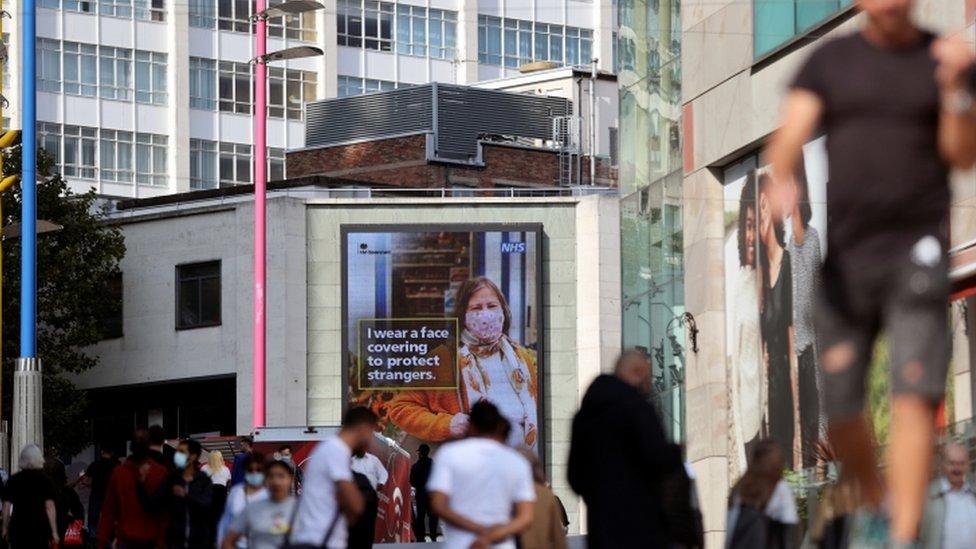
- Published1 July 2022
